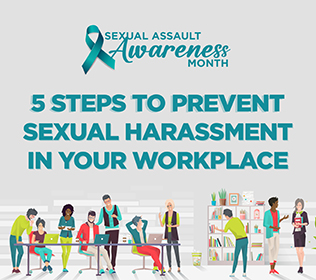Reminder: New York Pay Transparency Law was Effective September 17, 2023
As previously communicated in our compliance webinar and in our monthly Insights newsletter, as of September 17, 2023, employers with four (4) or more employees must disclose the compensation range or exact compensation for both internal and external job postings on internal platforms and third-party platforms, including but not limited to, newspaper advertisements, printed flyers, social media postings, targeted emails to applicant pools, and/or job posting websites. This law applies to jobs that are physically performed in New York and to jobs that are physically performed outside of New York but report to a supervisor, office, or worksite location located in the State of New York.
The compensation range cannot be open-ended and must include either the minimum and maximum annual salary amount or the hourly range of compensation for the advertised position. Additionally, if there are multiple open positions covered under one job posting based on location or seniority of the position, the compensation range must be provided for each specific location or level of seniority.
Recent Updates by New York Governor Hochul
Prevention of New York Employers from Terminating or Discriminating Employees for Refusing to Attend Certain Meeting Types
In September, New York amended an existing discrimination law (NY Labor Law 201-D) which already prohibited discrimination based on political activities, union membership, and the use of cannabis while not at work. The law now also prohibits employers from retaliating and discriminating against employees for not attending “captive audience” meetings where the main purpose is for management to express its view on certain political or religious matters, including union membership.
The new law defines political matters to include topics relating to elections for political office/parties, legislation, regulations, and, significantly, the decision to join or support labor organizations. Religious matters are defined as subjects relating to religious affiliations and practice, and the decision to join or support any religious organization or association.
The amended law does not prohibit employers from communicating information to employees that is required by law or is necessary for the performance of any employee-specific job duties.
New York State posting notices have been updated to reflect this change. As part of your poster subscription with PrestigePEO, you will receive these updates directly from the vendor shortly.
Wage Theft
Governor Hochul also signed a new bill in September amending the New York Penal Law to add wage theft as a form of larceny. Employers can now be charged with larceny for failure to pay employees wages at the minimum wage rate, overtime rate, or promised rate for work performed. New York law already provides for criminal penalties for wage theft. This amendment allows prosecutors to aggregate claims of non-payment or underpayments, which can result in stronger penalties for employers who steal employee wages.
Gender Identity or Expression for Interns
New York has added gender identity or expression as a protected class for interns. The law already protected employees from gender identity or gender expression discrimination. The new law merely expands the protected class to include interns.
Please reach out to your HRBP if you have any questions or concerns.



